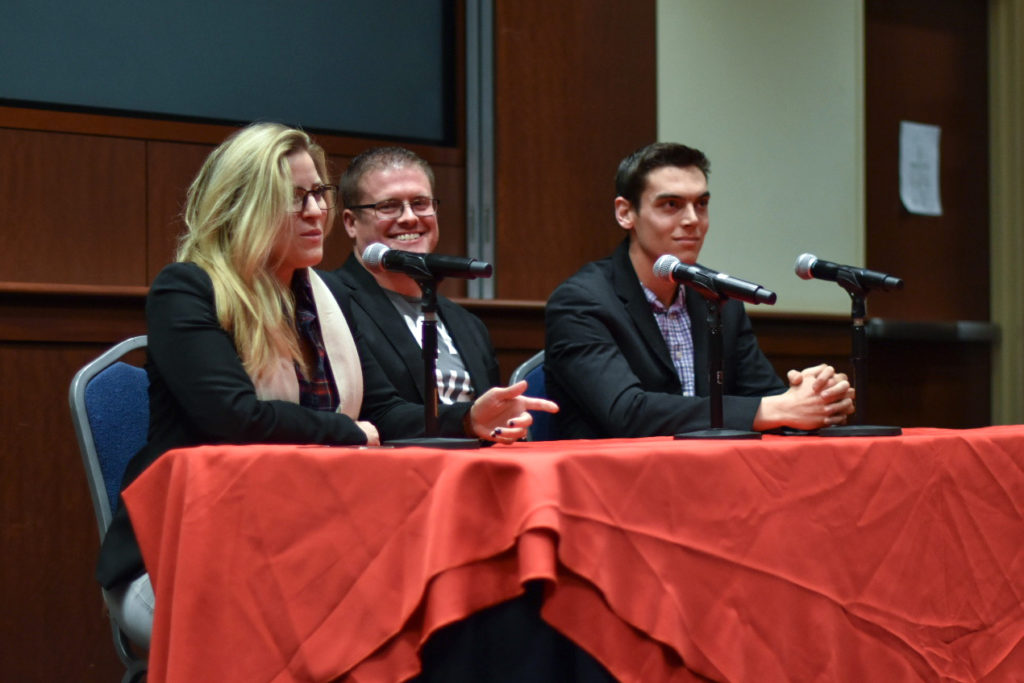Panelists discussed the Republican Party’s treatment of LGBTQ individuals and policy issues in the Marvin Center Tuesday.
Members of the panel discussed their experiences as LGBTQ individuals and Republicans and the strides the party has taken recently to support LGBTQ-related issues. About 40 people attended the event, which was hosted by GW College Republicans.
Charles Moran – the managing director of the Log Cabin Republicans, a Republican organization that advocates for equal rights for LGBTQ Americans – said he considers it his responsibility “to disrupt the narrative” and convince “disaffected” Democrats and independents that LGBTQ identity doesn’t mean one should necessarily join the Democratic Party.
“We are not just aficionados, we are not the keyboard warriors – all four of us, and these three in particular, represent a really important voice,” Moran said. “We all understand the interplay that our conservatism meets with our LGBT identities and how that manifests itself, being young Republicans.”
Dave McCulloch, a media and campaign consultant with Capitol Media Partners, said he initially thought he aligned better with Democrats because of the “gay issue.” He said he was scared of the GOP’s “Christian conservative values,” but later realized that his beliefs better aligned with Republicans.
“I realized that my core beliefs were more aligned with the Republican Party and conservatism and if I was ever going to see a positive change happen, I needed to show up, because if you’re not at the table, you’re on the table,” McCulloch said.
Edith Jorge, the political director of the Republican State Leadership Committee, grew up in Putnam County, New Jersey, and said she first registered as a Democrat. But after interning in former New Jersey Governor Chris Christie’s office, she realized that many of the values she supported were reflected in the policies he created.
She said she came out as gay more than a decade ago, when the issue received less attention in political discourse. She said it took her a “really long time” to be “comfortable” with some Republicans’ stance on LGBTQ issues but ultimately found that the party was more accepting than she had anticipated.
“What I got to find, quite frankly, that similar to coming out in real life, you find that you are your harshest critic, and you find that people are a lot more loving and open than you think they will be, and that was the case within the party,” Jorge said.
Brad Polumbo, the deputy contributors editor and a commentary writer at the Washington Examiner, said he became involved in conservative activism and journalism at about the same time he came out as gay, during his undergraduate years at University of Massachusetts at Amherst.
“Needless to say, I was dropped head first into a basket of woke, far-left progressive thought and really I simultaneously wasn’t a big Trump fan,” he said. “I wasn’t fully on the MAGA train but did not fully belong and was simultaneously coming out to my family and realizing I was gay.”
He said President Donald Trump has opted to take “relatively no action” on LGBTQ issues and is the first Republican president not to make LGBTQ policy a divisive cultural “wedge” issue in elections.
“The biggest thing Donald Trump has done to be a friend to the LGBT community is nothing at all,” Polumbo said.





